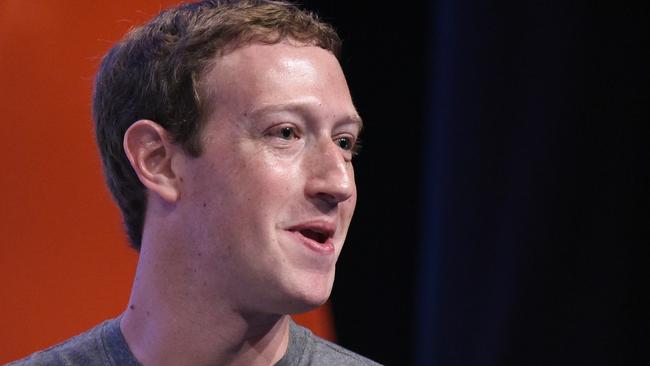Facebook and friends assume we are fools

In 2004, a young student at Harvard called Mark was chatting online to a friend about his new website. A mildly abbreviated transcript reads as follows:
Mark: Yeah so if you ever need info about anyone at Harvard, I have over 4,000 emails, pictures, addresses.
Friend: What? How’d you manage that one?
Mark: People just submitted it.
Mark: They “trust me”
Mark: Dumb f***s
This, of course, was Mark Zuckerberg, the founder of Facebook. The above leaked out during his protracted fight with the Winklevoss brothers, later made into the film The Social Network.
When you hear about the political consultancy Cambridge Analytica (CA) allegedly exploiting the Facebook data of more than 50 million people to campaign for Donald Trump, this is the context to remember. This is why, when you confront anybody who works in the field of digital marketing with the CA story, or others like it, they will shrug and say, “Yes. And?”. Yes, most nations have rules about what data should be allowed to go to whom, and for what. Yet the idea of a) harvesting of data and then, b) selling a service based on having it, is not some nefarious perversion of utopian innocence dreamt up by shadowy Etonian lizards. Rather, it is, and has always been, what Facebook is all about. It is what the whole damn website is for.
The small difference is that it was meant for selling products, not politics. Traditional web marketeers might, for example, spot that you’ve been browsing auto reviews and hit you with offers of finance to buy a car. At worst, they might couple all this with indications of your fears — you’ve spent months browsing child seats, you keep clicking on accident reports — and try to sell you a particularly sturdy car. Probably, even if you knew all of this was happening, and perhaps you vaguely do, you wouldn’t much mind. Why would you?
Selling politics isn’t like that. Perhaps it used to be. When online campaigning began, it started with the sort of data points that political parties have triangulated by for years; postcodes, age, likely income, choice of media, all of which give indications of voting preferences. So far, so blah. What about, though, when they notice you’ve got a teenage daughter, and start flooding your screen with the horrors of the Rotherham or Telford abuse cases? Is that still comfortable? What if you’ve been seeking family planning advice, and then find the banners and boxes on every web page you visit have become a carnival of anti-abortion messaging?
Or, worse still, what if you’re covertly assessed as somebody nudging right, and prone to fear or paranoia? “It’s no good fighting an election campaign on the facts,” CA’s Mark Turnbull, said in undercover footage aired by Channel 4 last night, “because it is all about emotion.” Fear may be the most powerful political emotion there is. So fear Muslim terrorists, you are told, fear black criminals, fear gays, fear your boy deciding to be a girl, fear a biased, left-wing media that hushes all of this up.
Meanwhile, your neighbour, prone to outrage and nudging left, is encouraged to be outraged about gangster capitalism, NHS privatisation, food banks and Tories torturing animals. And, of course, about a biased right-wing media, hushing all that up. Yet you don’t see what your neighbour sees, and he doesn’t see what you see. That media you both hate sees nothing at all. Is any of it true? Who knows?
Channel 4’s exposes of Cambridge Analytica may reveal a twisted malignancy at the heart of our democracy, or may simply reveal a firm of talented bullshitters without a fraction of the abilities they claim. It almost doesn’t matter. The ability to do this stuff exists, coded right into the technology many of us live through every day. Along with it comes the ability to smear, lie and propagandise, and to meddle, almost invisibly, in the democracy of other nations. Don’t kid yourself, either, that smugly avoiding social media makes you immune. Numerous other websites and apps scrape your data in ways that nobody bothers to tell you about. You still feed the beast.
We are here thanks to an unwitting alliance between politicians and pundits, who didn’t understand enough technology to grasp what was happening out there, and technological innovators who didn’t understand enough politics to grasp why it was a problem. Witness the culture, media and sport committee’s increasingly misnamed fake news inquiry, which started off worrying only about Macedonian fictions and now finds itself concerned with the opaque workings of online media itself.
The horrible truth is that tools built to sell cars and fridges have not just skewed our political discourse, but may have supplanted it altogether. Probably, you heard about this weekend’s insane online fuss over whether or not Newsnight fiddled with Jeremy Corbyn’s hat to make him look more Russian. For the bulk of our political class, and certainly our political media, this stuff is an afterthought; a silly appendix to the real politics of parliament, papers and political television. Yet a clip of Newsnight in which the columnist Owen Jones condemns the media treatment of Corbyn has since been posted online by Momentum and viewed almost a million times. This could be twice the audience of Newsnight itself. Which bit, then, is the appendix to which?
A new breed of campaigner understands the answer to that question, irrespective of whether CA ranks high among them or is merely pretending to. You know what they all think about a political class that doesn’t get it, yet? Pretty much what Mark Zuckerberg thought about all those Harvard students. What’s more, they’re right.
The Times






To join the conversation, please log in. Don't have an account? Register
Join the conversation, you are commenting as Logout